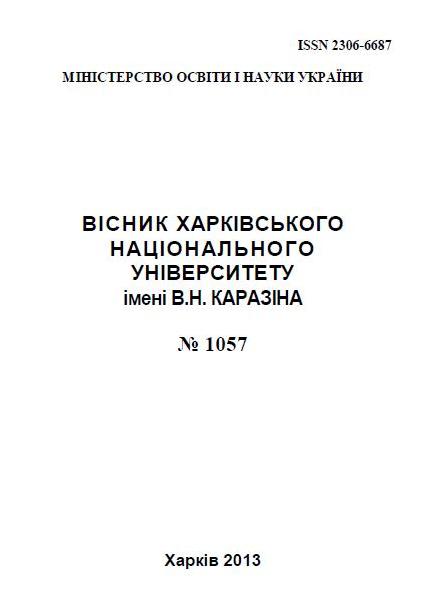PHILOSOPHICAL CONTROVERSY OVER THE INDISSOLUBILITY OF MARRIAGE
Abstract
Марек Чахоровский. Философская дискуссия о нерасторжимости брачных уз. Рассмотрено реконструкцию спора среди классиков философии по поводу моральной оценки неразрывности брака. Представление сводится к систематизированию и оценке точек зрения, принятых в истории этики, которая является необходимым условия для урегулирования спора о моральной оценке развода. Чтобы навести порядок тех точек зрения, автор использует пять существенных отличий в концепции эротической любви, анализируя и сравнивая точки зрения, защищенные первыми спорщиками (Сократ, Платон и Аристотель). Все эти отличия в концепции эротического взаимоотношения приводят к противопостав-ению моральной оценки развода с точки зрения их последовательности или непоследовательности.
Marek Czachorowski. Philosophical Controversy over the Indissolubility of Marriage. The study is a
reconstruction of a dispute among the classics of philosophy concerning the moral assessment of the indissolubility
of marriage (or its permanence). The presentation aims at systematizing and assessing the standpoints
adopted in the history of ethics, which is a condition necessary for settling the dispute on the moral assessment of
divorce. To put those standpoints in order, the author uses five essential differences in the conception of erotic
love, explicated by analyzing and comparing standpoints defended by the first disputants (Socrates, Plato and
Aristotle).
(1) The erotic relationship is reduced to erotic feelings or is considered as transcending those feelings;
(2) The erotic relationship is subjected to a kind of common good or is thought to be oriented towards the
good of the subjects of this relationship themselves;
(3) The erotic relationship is considered as egoistic or oriented towards the good of the other person;
(4) The erotic relationship is regarded to be formed in a spontaneous way or to be subjected to the causative
effect of reason and will of the subjects;
(5) The erotic relationship is conceived as axiologically subordinating one of its parties or as an axiological
equity constituted by the parties.
All those differences in the conception of the erotic relationship result in opposing moral assessment of divorce
as consistent or inconsistent with the essence of the erotic relationship (or marital love). The reasons for
adopting certain of the solutions and rejecting the others have been stated.
Keywords: marriage, divorce, moral, love mutual relations, erotic love.




